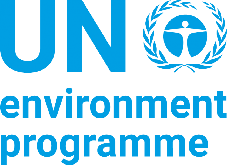Ghana is setting the pace on the African continent in sustainable development. Its capital city of Accra demonstrates leadership in the region – it was among the first African cities to commit to the Global Covenant of Mayors for Climate & Energy (GCoM) and engages in the BreatheLife campaign. Now, as the world faces its biggest health crisis of our generation, Accra continues to lead by example.
With all the suffering and hardship the COVID-19 global pandemic has brought, temporary lockdowns in cities across the world have had one major positive impact: showing how reduced air pollution enables walking and cycling without fear of breathing harmful gases, with reduced noise levels, and safer spaces enabling healthier lifestyles. Though temporary, the reduced level of air pollution, due to fewer greenhouse gases (GHGs) and Short-Lived Climate Pollutants (SLCPs) emitted worldwide, has shown it is possible to have cleaner, healthier air to breathe in urban areas. Making these gains permanent – to reduce the human impact on climate change and improve health – requires deliberate policy interventions.
Here, Accra has a head start. The Urban Health and SLCP Reduction Project , implemented in Accra with support from the Climate and Clean Air Coalition (CCAC) started in December 2016. It aimed to catalyze widespread action to implement SLCP reduction strategies, by mobilizing the health sector, and work closely with the local government across several departments. Health professionals, with appropriate information, knowledge and tools, can leverage their influential position and demonstrate the full range of health benefits possible at the city level. Local decision-makers and municipal staff in turn can plan and implement policies that support accelerated air quality improvement. The powerful combination of these two groups working together can lead to high impact actions.
“Cities are becoming more important in the geopolitical space. In our part of the world, air pollution is not prioritized as a health concern — even in the way we cook,” said the Mayor of Accra, Mohammed Adjei Sowah. “But the statistics are so staggering that we have to wake people up to take action. We have to talk about it loudly so that it becomes part of our discourse in the urban political space,” he said.
In this spirit, the World Health Organisation (WHO), United Nations Human Settlements Programme (UN-Habitat), and ICLEI – Local Governments for Sustainability (ICLEI), have been working closely with the Accra Metropolitan Assembly (AMA) in collaboration with Ghana’s Ministry of Health, Ghana Health Service, the Environmental Protection Agency and the Ministry of Transport to mobilize the health and other sectors. The cooperation promoted air pollution reduction policies and strategies through a variety of capacity building, outreach and advocacy actions, supported by strong health and economic evidence.
Read the full story here.
